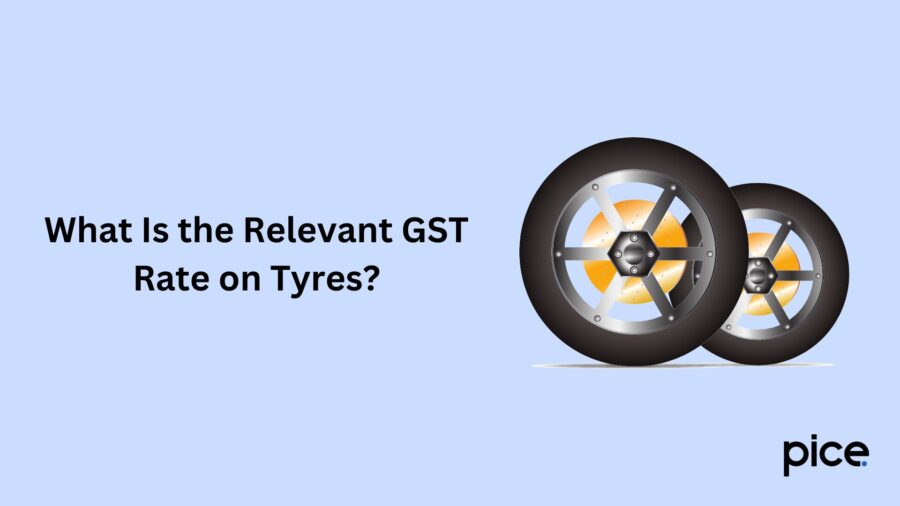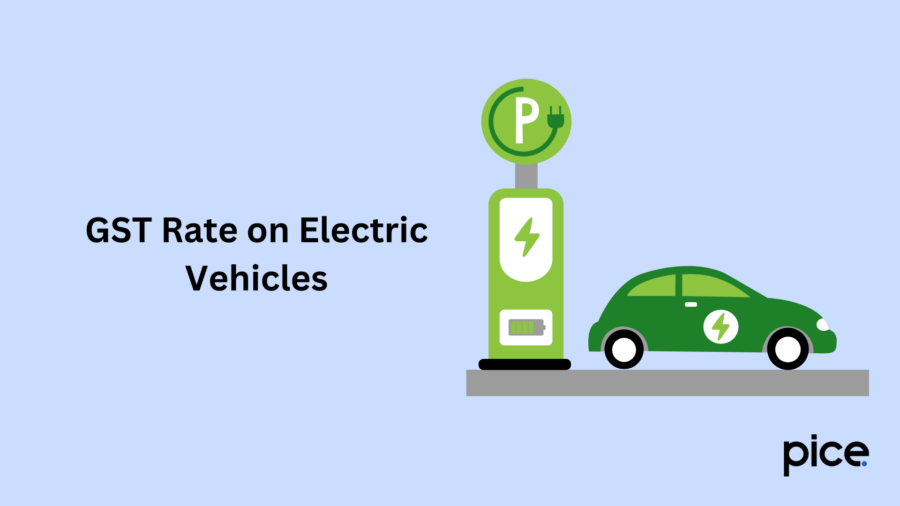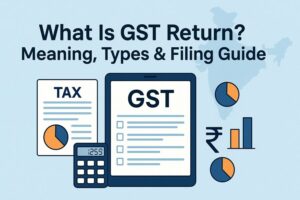GST Compensation Cess on Motor Vehicles in India
- 14 Oct 24
- 10 mins

GST Compensation Cess on Motor Vehicles in India
- GST on SUVs
- Compensation Cess Rates Applicable on SUVs
- Compensation Cess in GST Act
- What Is the GST Rate on SUV Cars?
- What is the GST Rates Applicable on Cars?
- What Is the Relevant GST Rate on Tyres?
- GST on Commercial Road Vehicles
- GST on Used Cars
- GST Rate on Electric Vehicles
- Impact of GST on Buying Cars
- Conclusion
Key Takeaways
- High Tax on SUVs: SUVs are taxed at 28% GST plus a 22% cess.
- Luxury vs. EVs: Luxury SUVs face higher taxes, while electric vehicles enjoy a lower 5% GST rate.
- Cess Criteria for SUVs: SUVs with engines over 1500cc, length over 4000mm, and 170mm ground clearance attract a 22% cess.
- Reduced GST on Used Cars: GST on used cars is 12-18%, depending on engine size, without extra cess.
- Lower GST on EVs: Electric vehicles and accessories are taxed at just 5% to promote eco-friendly options.
In India, all goods and services, including cars, are taxable under the Goods and Services Tax Act, 2017. The GST tax rate slabs range from 5 to 28 per cent, depending on the vehicle type. Most cars, whether for personal or commercial use, fall under the highest GST slab rate of 28 per cent.
Handle all your sales and purchase invoices in one place.
Pice’s all-in-one invoice management tool helps you track, send, and organize invoices from a single dashboard. Automatically share new invoices with customers, send timely payment reminders, and keep your collections under control—effortlessly.
Want early access? Fill out this form to get request a demo!
The GST Council has revised the compensation cess on motor vehicles, impacting those subject to an additional GST compensation cess of up to 22 per cent.
For SUVs (Sport Utility Vehicles) and MUVs (Multi-Utility Vehicles), this can push the total applicable tax rates on these vehicles as high as 50 per cent. Knowing the GST compensation cess on motor vehicle tax rates and taxable supplies is crucial for future buyers to accurately assess the overall cost of purchasing an SUV or MUV.
GST on SUVs

The GST rate applicable on SUVs is 28 per cent unless the SUV is electric, in which case the lowest GST rate is 5 per cent. Besides GST, SUVs incur a rate of compensation cess. This extra tax increases the overall cost of owning an SUV. For other motor cars and vehicles not used for transporting 10 or more people, the rate of GST remains at 28 per cent.
The government does this to make luxury SUVs more expensive to buy and help more people choose electric vehicles by making them cheaper.
Compensation Cess Rates Applicable on SUVs
The GST Council in December 2022, five years after implementation of GST, classified SUVs for compensation cess purposes. The revision of rates is based on the following key factors:
- Recognised as an SUV
- Cars with basic engine capacity exceeding 1500cc
- Length greater than 4,000 mm
- Ground clearance of 170 mm or higher
Only SUVs meeting these conditions are liable for a 22 per cent rate of cess. Additionally, SUVs and motor vehicles have different cess rates based on the engine type and capacity. Below is a representative list of taxes applicable or cess rates on vehicles:
- Petrol/LPG/CNG vehicles (engine up to 1200cc, length up to 4000 mm): 1 per cent
- Diesel vehicles (engine up to 1500cc, length up to 4000 mm): 3 per cent
- Motor vehicles (engine not exceeding 1500cc, except diesel vehicles): 17 per cent
- Motor vehicles (engine exceeding 1500cc, not classified as SUVs): 20 per cent
- SUVs meeting the above conditions: 22 per cent
- Other motor vehicles (excluding motorcycles, ambulances, three-wheelers, electric and fuel cell vehicles): 15 per cent
Compensation Cess in GST Act
A compensation cess is a tax introduced under the GST Act to address revenue losses for producer states caused by the interstate transfer of goods and services. Certain goods are charged an extra tax called compensation cess. This tax is charged to help states that are involved in manufacturing and might lose money because of the new VAT system.
Some of the items that have this extra tax include cars, aerated water, coal, and tobacco products. It is also important to note that this direct tax compliance does not apply to goods that are exported from India.
Businesses that are registered under the composition scheme do not have to pay it. Originally, this GST compensation cess rate was planned to be in place for 5 years starting from the introduction of GST on July 1, 2017, and was supposed to end on July 1, 2022.
What Is the GST Rate on SUV Cars?
The GST rate on SUV cars is 28 percent. In addition to this, there is an applicable cess rate of 22 percent. This high tax rate is because SUVs are 1200cc diesel cars and considered luxury vehicles.
What is the GST Rates Applicable on Cars?
The tax rate on cars in India depends on the taxable supplies, type and use of the vehicle. The most common tax rate for cars, personal or commercial, is 28 per cent. However, there are lower rates for specific categories.
For example, a 5 per cent GST rate applies to carriages used by disabled people or handicapped people, baby carriages, and their related accessories. In addition to the standard GST, a compensation cess of up to 22% can be levied on cars depending on the specific characteristics, like engine capacity above 1500cc and a length greater than 4000mm.
Furthermore, certain categories like small petrol cars and electric vehicles have lower tax rates. Electric vehicles enjoy the lowest tax rate of 5 per cent. This applies to electric vehicle accessories like chargers and charging stations as well.
Moreover, specific categories like cars that run on petrol with an engine capacity of 1500cc have a compensation cess rate of 1 per cent. A compensation cess rate of 3 per cent applies for diesel cars with a length of up to 4,000 mm and a passenger capacity between 10 and 13. Electric vehicles benefit from the lowest GST rate of 5 per cent, which also extends to EV accessories like chargers and charging stations.
What Is the Relevant GST Rate on Tyres?

In India, the current GST rate on tyres is 28 per cent. Tyre tubes attract a lower GST rate of 18 per cent. This distinction helps differentiate the tax burden between tyres and their inner tubes.
For two-wheelers, the GST rate is the same. There is no GST compensation cess for motorcycles with engine capacity below 350cc. However, a 3 per cent cess is added for 350cc motorcycles and mopeds with engine capacity above that. This high tax rate affects the overall cost of vehicles, influencing consumer purchasing decisions.
GST on Commercial Road Vehicles
Commercial vehicles like those designed to carry passengers, goods or are for agricultural use are subject to GST rates ranging from 12 per cent to 28 per cent. Key cases where the applicable GST rate is 12 per cent include special-purpose vehicles as follows:
- Tractors other than road tractors for semi-trailers with engine capacity exceeding 1800cc
- 1200 to 1800cc Self-loading/self-unloading trailers for agricultural purposes
Unlike SUVs, commercial vehicles for transport do not attract a GST compensation cess. This simplifies the tax structure for these vehicles. This varied GST rate on vehicles aims to standardise taxation across different commercial vehicle types while accommodating their diverse uses.
GST on Used Cars
The GST rates on used cars were reduced to boost the second-hand car market. Here are the current applicable rates on vehicles based on larger engine capacities:
| Smaller Pre-owned Vehicles with Engine Capacity | GST Rate |
| Petrol cars of engine capacity up to 1200cc | 12 per cent GST, no compensation cess |
| Diesel cars with engine capacity up to 1500cc | 12 per cent GST, no compensation cess |
| Larger Pre-owned Vehicles with Engine Capacity | GST Rate |
| Petrol cars over 1200cc engine capacity | 18 per cent GST, no compensation cess |
| Diesel cars over 1500cc engine capacity | 18 per cent GST, no compensation cess |
Previously, used cars had the same GST rate of 28 per cent as new vehicles. The reduction in GST rates and the removal of the rate of GST compensation cess have made used cars more affordable. This change aims to encourage the growth of the pre-owned car market.
GST Rate on Electric Vehicles

The applicable tax rate on EVs is significantly lower than that on conventional fuel vehicles. Earlier, electric vehicles and their accessories like chargers and charging stations were taxed at 18 per cent.
However, the 36th GST Council meeting on July 27, 2019, reduced the GST rate to 5 per cent. Starting from August 1, 2019, this rate applies to all EVs and their accessories, for both private and commercial use.
The reduced rate is part of the government's efforts to promote the adoption of electric motors and reduce pollution.
Impact of GST on Buying Cars
The introduction of GST in 2017 aims to simplify India's indirect tax structure. This significantly impacted the automobile sector. It is based on the types of vehicles. GST on passenger cars and commercial vehicles stands at 28 per cent.
Understanding the tax structure is essential for buyers for those seeking financing options like credit cards or personal loans. CIBIL, Experian, Equifax, and Hi-Mark credit bureaus maintain credit records, which include credit scores and files that help lenders assess borrowers' creditworthiness.
However, individuals who lack a credit bureau record because they have never borrowed from an RBI-regulated financial institution. Thus, inadequate credit history impacts their ability to obtain financing. For those with established credit files and a strong credit history, their credit scores can significantly influence the terms of any credit facilities they seek.
Hence, getting a complimentary credit report can provide valuable insights into one’s credit standing and aid in making informed decisions about vehicle financing.
Conclusion
The tax & compensation cess rates on SUV cars in India are among the highest in the automobile sector. This high tax rate is in line with the government's policy to tax luxury items at higher rates. Low GST rates for EVs is intended to discourage the purchase of luxury vehicles while promoting cleaner technologies, like electric vehicles.
Buyers need to understand taxation on motor vehicle sales and remember relevant rates before making choices. Understanding GST implementation requires an effortless collaboration between the government and buyers.
💡If you want to streamline your payment and make GST payments, consider using the PICE App. Explore the PICE App today and take your business to new heights.
 By
By 
















